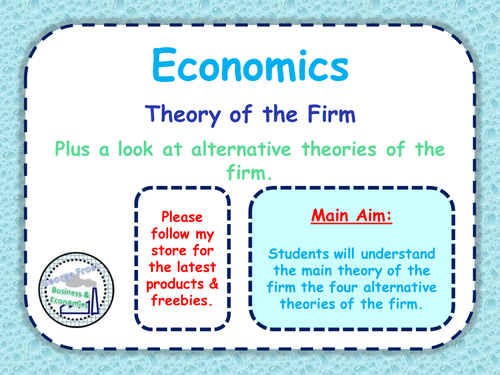George's Marvellous Business Studies & Economic Resources
Please check out my quality teaching resources that cover both Business Studies and Economics. I have been a teacher for over 10 years and always aim to produce high quality worksheets, activities and presentations. I have taught both Business Studies and Economics from GCSE to A-Level. Please come back often to see my latest and greatest resources.





















